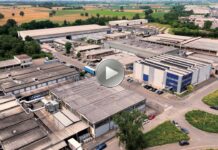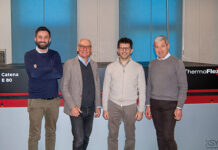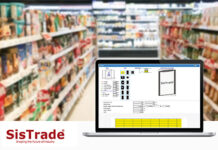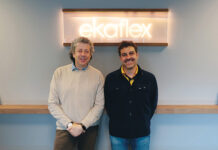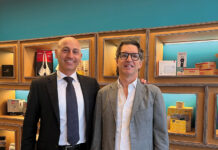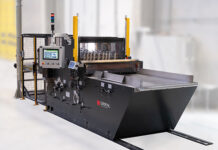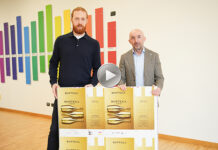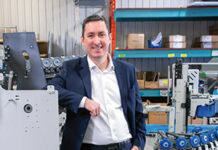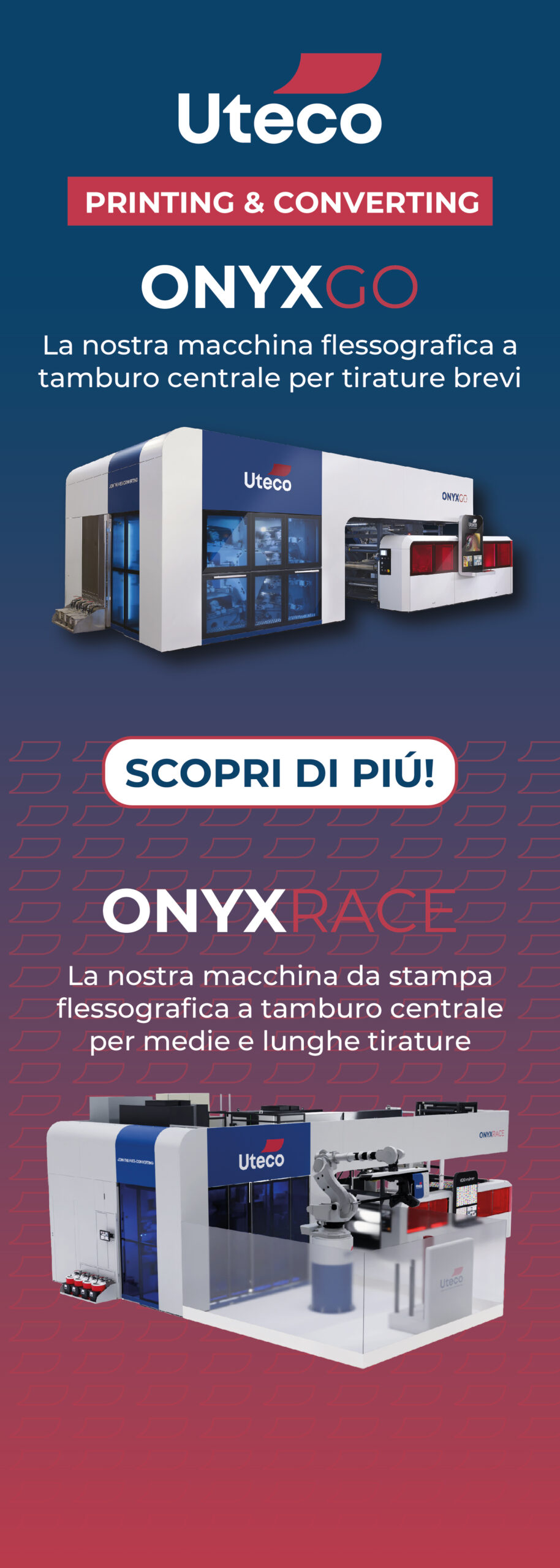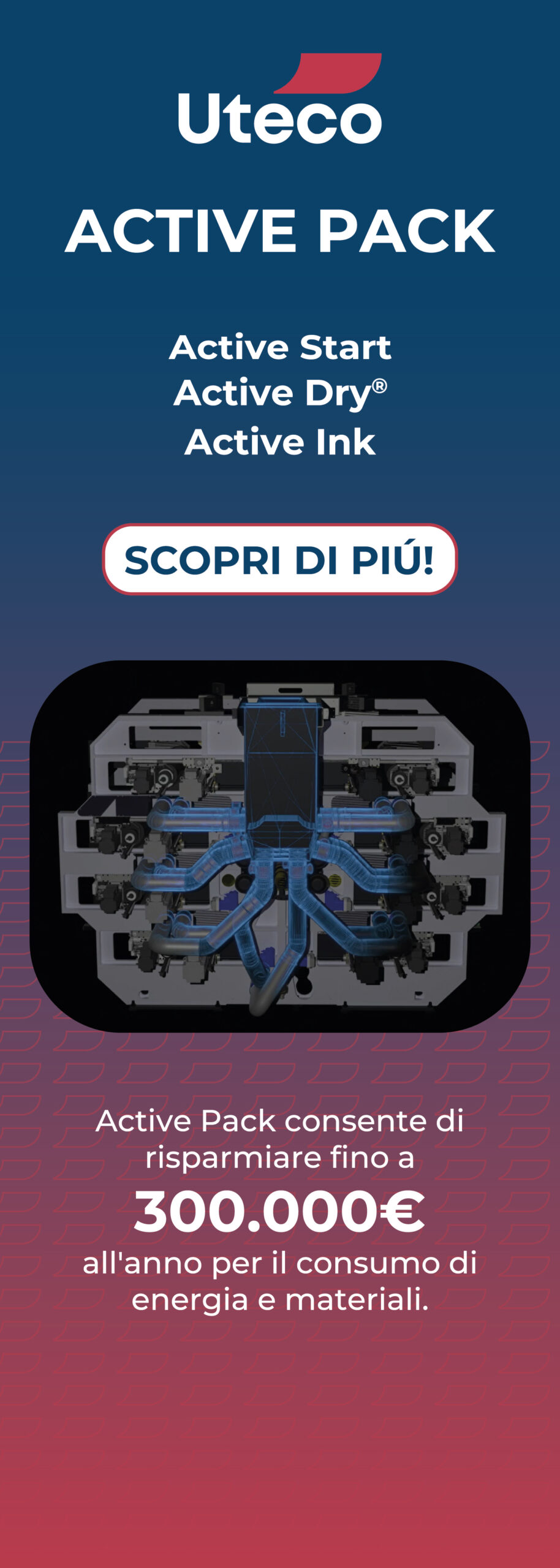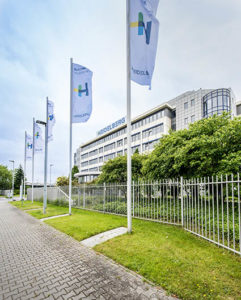 Due to the increasingly tangible successes yielded by the company’s transformation, plus growing demand from China and, since the third quarter, from Europe, too, Heidelberg is raising its target operating return for financial year 2020/21 as a whole. Consequently, the company anticipates that its EBITDA margin excluding restructuring result will grow to approximately 7 percent, even though the coronavirus pandemic may lead to a sales decline of around € 450 million to € 500 million compared to the previous year (previous year’s sales: € 2,349 million) for the year as a whole. It is also an encouraging sign for the coming months that print volumes among Heidelberg customers have almost reached the levels of the previous year, with the print volume in the packaging sector even exceeding the previous year’s level.
Due to the increasingly tangible successes yielded by the company’s transformation, plus growing demand from China and, since the third quarter, from Europe, too, Heidelberg is raising its target operating return for financial year 2020/21 as a whole. Consequently, the company anticipates that its EBITDA margin excluding restructuring result will grow to approximately 7 percent, even though the coronavirus pandemic may lead to a sales decline of around € 450 million to € 500 million compared to the previous year (previous year’s sales: € 2,349 million) for the year as a whole. It is also an encouraging sign for the coming months that print volumes among Heidelberg customers have almost reached the levels of the previous year, with the print volume in the packaging sector even exceeding the previous year’s level.
“The successful roll-out of the transformation measures has enabled Heidelberg to achieve a clearly positive operating result, despite the huge pressures caused by COVID-19. Signs of recovery are now emerging on the markets in China and Europe that are important to us. That is why our EBITDA target margin excluding restructuring result is being increased to around 7 percent. The growing interest in our contract business and strong demand for our electromobility charging stations are also grounds to be optimistic about the future,” says Heidelberg CEO Rainer Hundsdörfer, commenting on these developments.
Again in the third quarter, the numerous measures of the transformation program launched in March of last year more than compensated for the negative effect on earnings caused by a significant drop in sales due to COVID-19. As a result, after nine months of financial year 2020/21 (April 1 to December 31, 2020), the operating result including effects from the measures that have been implemented was above that of the same period of the previous year.
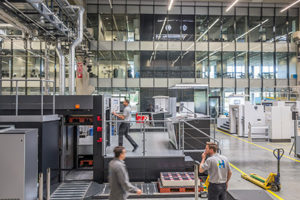 In the year under review, Heidelberg reached a number of milestones in its strategy to safeguard the company’s future on a sustainable basis, including: reorganizing the company pension scheme in Germany, which bolstered the result and shareholder’s equity with earnings of € 73 million; focusing on its core activities and selling the Belgian subsidiary CERM and the Belgian production site for printing chemicals, which made possible a total gain on disposal of € 19 million; discontinuing unprofitable product lines that previously had an adverse effect on the result amounting to approximately € 50 million a year; repaying the corporate bond early, which will disburden the financial result by € 12 million a year; cutting approximately 1,600 jobs worldwide by 2023 (just under 1,000 of which will be cut during this financial year), a move that has been agreed with employee representatives and is being implemented on a socially acceptable basis; together with additional sustainable savings in material and staff costs, this downsizing is to lead to savings of more than € 170 million for financial year 2022/23; selling property in Wiesloch-Walldorf and the Print Media Academy in Heidelberg for a purchase price totaling more than € 60 million as part of a site and structural optimization strategy; agreeing a production joint venture with Chinese company Masterwork Group, which is creating opportunities in Asia and is offering much better cost efficiency; doubling the production capacity for Heidelberg Wallboxes – the charging stations for electric cars – by April 2021.
In the year under review, Heidelberg reached a number of milestones in its strategy to safeguard the company’s future on a sustainable basis, including: reorganizing the company pension scheme in Germany, which bolstered the result and shareholder’s equity with earnings of € 73 million; focusing on its core activities and selling the Belgian subsidiary CERM and the Belgian production site for printing chemicals, which made possible a total gain on disposal of € 19 million; discontinuing unprofitable product lines that previously had an adverse effect on the result amounting to approximately € 50 million a year; repaying the corporate bond early, which will disburden the financial result by € 12 million a year; cutting approximately 1,600 jobs worldwide by 2023 (just under 1,000 of which will be cut during this financial year), a move that has been agreed with employee representatives and is being implemented on a socially acceptable basis; together with additional sustainable savings in material and staff costs, this downsizing is to lead to savings of more than € 170 million for financial year 2022/23; selling property in Wiesloch-Walldorf and the Print Media Academy in Heidelberg for a purchase price totaling more than € 60 million as part of a site and structural optimization strategy; agreeing a production joint venture with Chinese company Masterwork Group, which is creating opportunities in Asia and is offering much better cost efficiency; doubling the production capacity for Heidelberg Wallboxes – the charging stations for electric cars – by April 2021.
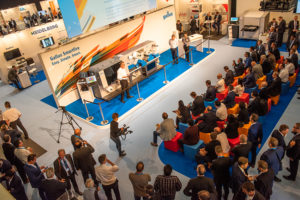 The sale of the Gallus Group, which did not go ahead at the end of January 2021 despite there being a valid purchase contract, is clouding the positive picture. However, this is not causing limitations with regard to the results forecast for the current financial year. CFO Marcus A. Wassenberg explains: “All in all, we have made much faster and more successful progress with our company’s transformation than previously reported. We have raised more than € 450 million in liquidity, reduced debt by approximately € 260 million, moved away from loss-makers and will reduce costs by more than € 170 million a year on a sustainable basis. We are therefore confident we will return to attractive profitability in the medium term”.
The sale of the Gallus Group, which did not go ahead at the end of January 2021 despite there being a valid purchase contract, is clouding the positive picture. However, this is not causing limitations with regard to the results forecast for the current financial year. CFO Marcus A. Wassenberg explains: “All in all, we have made much faster and more successful progress with our company’s transformation than previously reported. We have raised more than € 450 million in liquidity, reduced debt by approximately € 260 million, moved away from loss-makers and will reduce costs by more than € 170 million a year on a sustainable basis. We are therefore confident we will return to attractive profitability in the medium term”.
Figures for the first nine months of financial year 2020/21 – order levels looking increasingly good
Although the market environment is still challenging, there were further signs of recovery for Heidelberg during the third quarter. While the Chinese market had already reached almost pre-crisis levels, business started to get back to normal levels in Europe, too. After nine months of 2020/21 (April 1, 2020 to December 31, 2020), sales were at € 1,289 million and therefore still approximately 24 percent below the same period of the previous year (€ 1,690 million). At € 1,421 million, incoming orders were 25 percent below the previous year (€ 1,900 million). However, the shortfall was lower in the third quarter, at just 12 percent, and, in the month of December, incoming orders were back above the previous year’s figure for the first time in this financial year. The order backlog rose by € 55 million compared with the previous quarter, reaching € 682 million.
Due to the conversion of securities into cash and cash equivalents and inflows from the aforementioned portfolio measures and improvements in net working capital, free cash flow was improved in the period under review by € 63 million to € –10 million. A positive figure of € 42 million was achieved in the third quarter.





